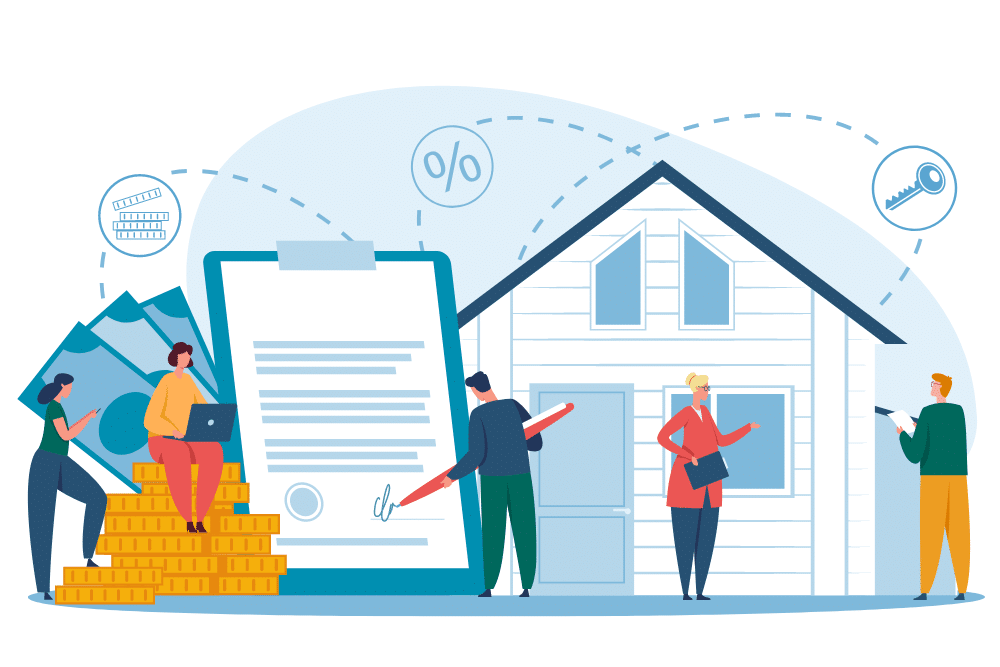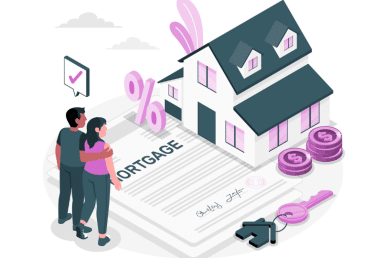Shopping for a Mortgage — Frequently Asked Questions
Getting ready to buy a home? A good mortgage loan is key to making your dreams of homeownership come true. But it can be intimidating to browse all the potential lenders and loans to find a mortgage that works for you.
Here are answers to the most common questions about shopping for a mortgage that can help you compare loans and get the best deal.
What’s a Mortgage?
A mortgage is a homebuying loan contract between you and a lender, such as a bank, credit union, or mortgage company. The lender loans you money to buy a home, and you agree to pay it back according to the terms of your contract. Your home often acts as collateral for the loan, meaning that the lender may have the right to take ownership of your property if you fail to make the agreed payments.
Find a Mortgage Lender
Start your search for mortgage lenders
What Should I Do Before Getting a Mortgage?
Before you apply for a mortgage, you should do three things:
How Do MortgageBrokers Work?
A mortgage broker is a person that can help you compare lenders and figure out loan details. They often have access to a wide lender network and can help you with the application process to save you time. Of course, you will have to pay them. The broker’s fees might get added to the final closing amount or the interest rate. Ask your broker how they want to get paid to ensure you’re clear on their terms.
Additionally, a broker may not always get you the best deal, so double-check the loan terms and conditions yourself. Interview multiple brokers to find out which you want to work with—if any. You may check whether your broker has been involved in any disciplinary actions with the National Multistate Licensing System (www.nmlsConsumerAccess.org).
Can I Negotiate Mortgage Terms?
Yes. It’s a good idea to get quotes from multiple lenders so you can ask them to match other offers. You can also request a lender or broker to lower their rates or fees. Finally, if they agree to lower one fee, make sure the lender or broker isn’t sneakily raising another.
How Can I Avoid Deceptive Loans?
With so many mortgage lenders and brokers out there, you should look out for deceptive mortgage ads. Be wary of advertisements promising
very low or fixed interest rates and low payments. The low or fixed rate may only apply for a very limited time, so pay attention to the fine print spelling out the APR—lenders must provide it under federal law if they mention an interest rate.
Low payments may only apply to the interest rate and not the actual amount of money you borrowed, called the principal. You must eventually pay the principal and might end up with much higher monthly payments.
Finally, beware of negative amortization. This is a scheme where you pay off only a portion of the loan’s interest each month. The unpaid interest gets added to the principal, which can increase the amount you owe beyond the value of your home.
How Do I Pick the Best Loan?
Figure out the total monthly payment of your loan using the PITI method. This calculation adds together the monthly payments for the Principal, Interest, Taxes, and homeowner’s Insurance. Look for the lowest PITI when comparing loans.
You may have to take private mortgage insurance (PMI) which can be included in the PITI—but it also may not be. Ask your lender if PMI is included in the PITI and add it to the final sum if it isn’t.
Will Credit Problems Affect My Mortgage Loan?
Issues with your credit history can result in you having to pay more for a loan, or they could even disqualify you. This is why you should check
your credit report before applying for a mortgage. If you have credit problems, honestly explain them to the lender and they may be willing to
overlook them.
How Can I Improve My Chances of Getting a Mortgage?
Give the lender as much information as possible to support your application. Hand over detailed reports on your income and employment history to show you’re able to pay the loan back. If you have missed bills due to layoffs or medical issues, write a detailed letter explaining the
situation. Lenders must consider any information you give them, so being thorough can help.
What Info Will Lenders Give Me After I Apply?
Under federal law, lenders and brokers must provide you:
The Consumer Financial Protection Bureau (CFPB) a U.S. government agency that makes sure banks, lenders, and other financial companies
treat you fairly.
The content in this article provides general consumer information. It is not legal advice or regulatory guidance. The CFPB updates its information periodically. This information may include links or references to third-party resources or content. CFPB does not endorse the third-party or guarantee the accuracy of the third-party information. There may be other resources that also serve your needs.
Find a Mortgage Lender
Start your search for mortgage lenders
© RGV New Homes Guide, 2023. Unauthorized use and/or duplication of this material without express and written permission from this site’s author and/or owner is strictly prohibited. Excerpts and links may be used, provided that full and clear credit is given to RGV New Homes Guide with appropriate and specific direction to the original content.





